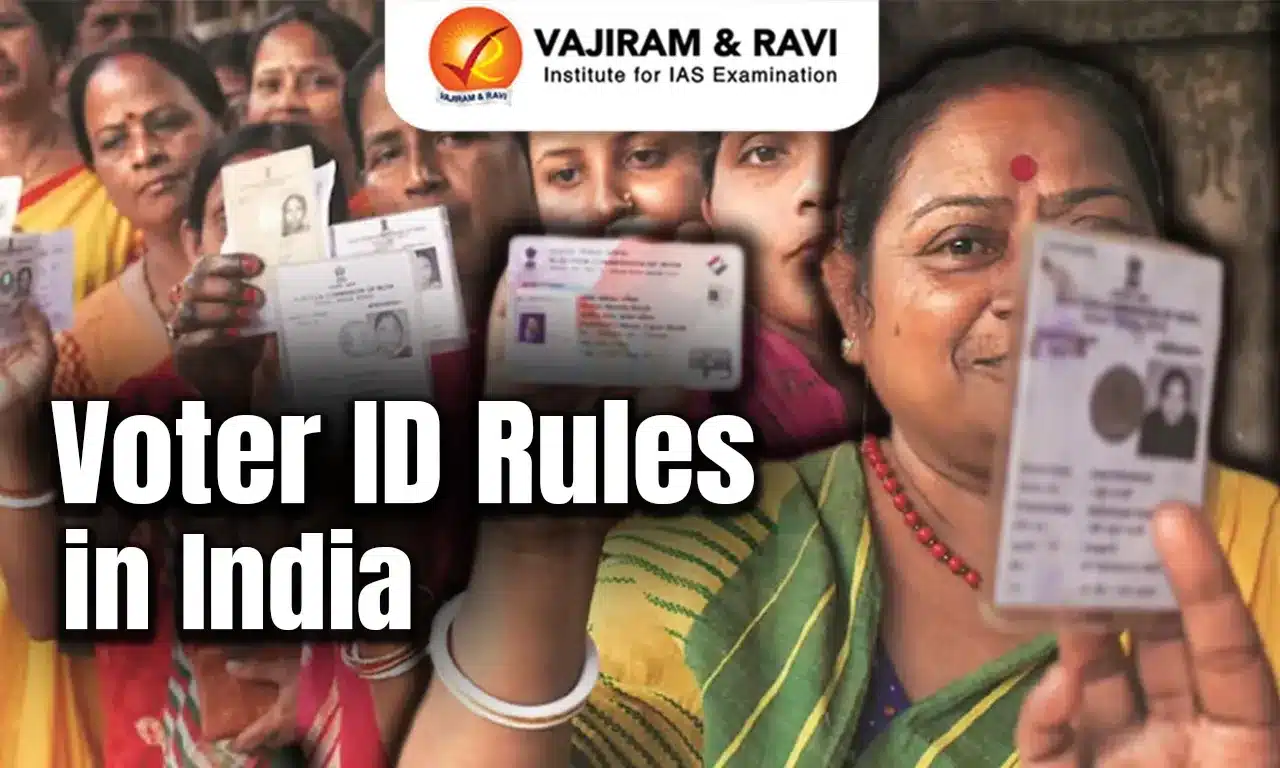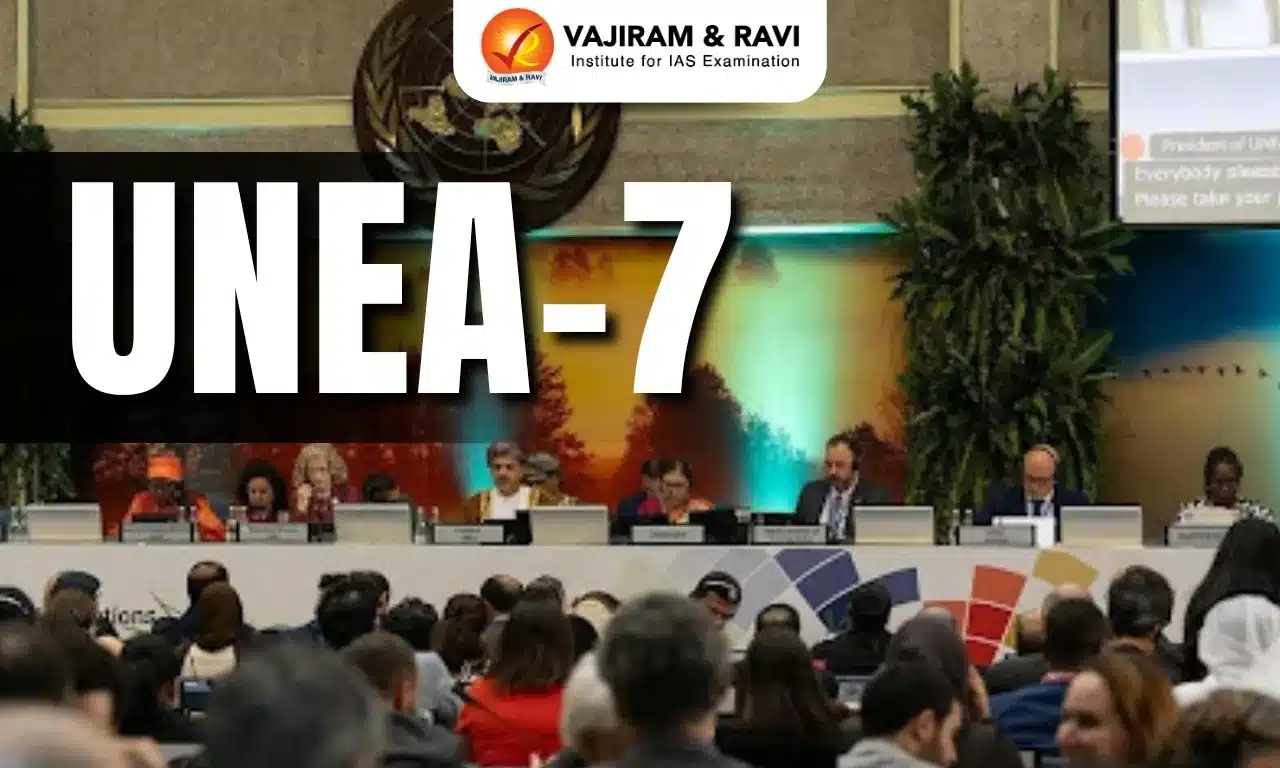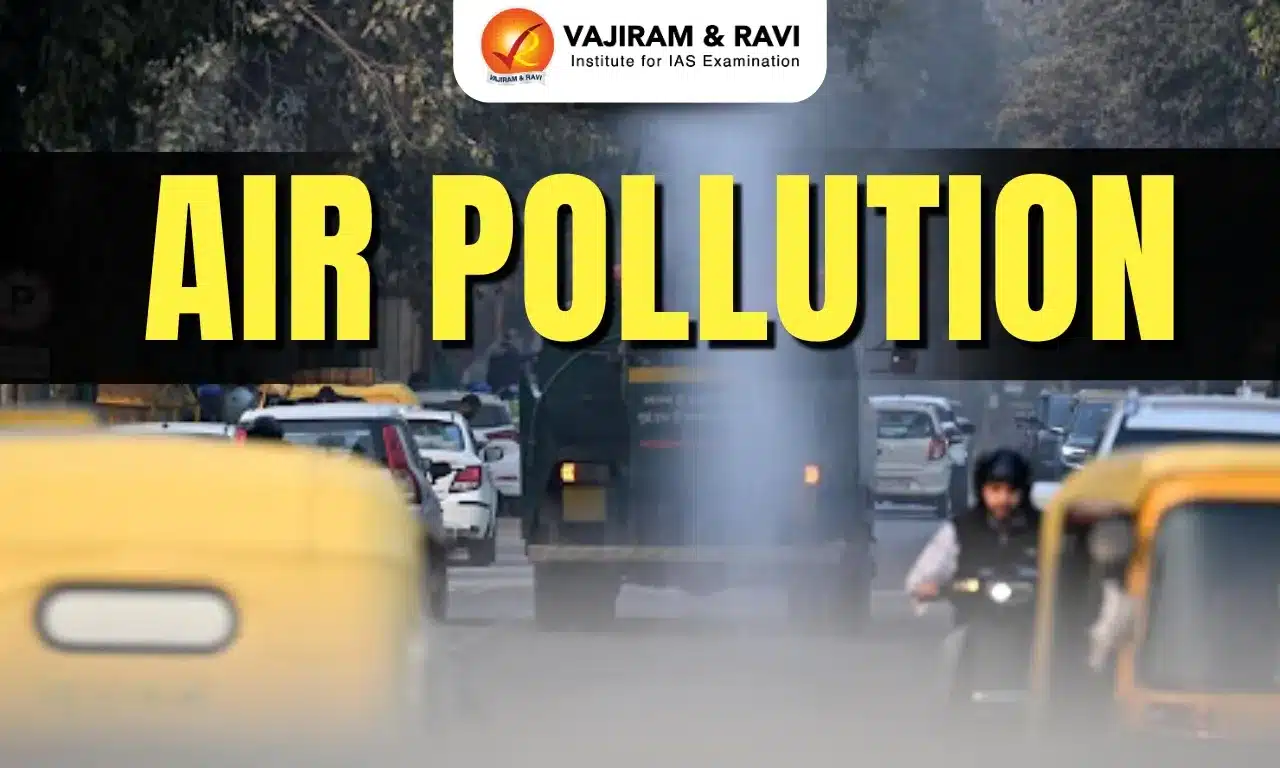What’s in Today’s Article?
- Voter ID Rules in India Latest News
- Rules Regarding Voter ID Eligibility and Verification
- How Citizenship is Determined for Voter Registration
- Cases of Non-Citizens Holding Voter IDs
- Voter ID Rules in India FAQs
Voter ID Rules in India Latest News
- Following a government order in response to the Pahalgam terror attack, hundreds of Pakistani nationals have been deported from India.
- Several deportees, however, claimed possession of Indian identity documents, such as Aadhaar cards, ration cards, and Voter IDs.
Rules Regarding Voter ID Eligibility and Verification
- Article 326 of the Indian Constitution grants the right to vote to every Indian citizen aged 18 years or above in elections to the Lok Sabha and State/UT Assemblies.
Disqualification Criteria (Representation of the People (RP) Act, 1950– Section 16)
- A person can be disqualified from voter registration if they:
- Are not a citizen of India.
- Are of unsound mind, as declared by a competent court.
- Are disqualified under any law related to corrupt practices or election-related offences.
Application Process (Form 6)
- Form 6 -the Election Commission of India’s (ECI’s) form for registering new electors – is used for registering new electors with the ECI.
- Requires self-attested documents for:
- Age proof
- Address proof
- No separate citizenship proof is needed, but the applicant must sign a citizenship declaration.
Penalties for False Declaration (Section 31, RP Act)
- If the citizenship declaration is false, the applicant can face:
- Up to 1 year of imprisonment
- Or a fine
- Or both
Verification by Electoral Authorities
- Electoral Registration Officer (ERO) verifies claims and objections.
- Booth Level Officers (BLOs) assist EROs by collecting forms and documents.
- The ERO may also conduct hearings and investigations before finalizing entries.
How Citizenship is Determined for Voter Registration
- Responsibility of the Electoral Registration Officer (ERO)
- The ERO must ensure that no ineligible person, including non-citizens, is added to the electoral roll.
- The ERO must independently verify the applicant’s citizenship status, especially when a claim or objection is raised.
- The ERO is expected to evaluate all evidence presented during the inquiry without external influence.
- Initial Onus of Proof
- The applicant bears the initial burden of proof to establish Indian citizenship when applying for the first time.
- Special Cases
- For migrants within India, the ERO cross-checks with the District Election Officer (DEO) of the applicant’s previous district.
- For married women without documentary proof:
- Previous voter registration as an unmarried woman can be considered.
- Proof of marriage or certificates from village heads (before and after marriage) may be accepted.
- Objections to Citizenship
- If someone objects to an applicant’s citizenship, the burden of proof shifts to the objector.
- However, the ERO may still require the applicant to provide proof of Indian citizenship in such cases
Cases of Non-Citizens Holding Voter IDs
- Previous Instances
- Non-citizens obtaining voter IDs is not a new issue.
- The Election Commission of India (ECI) has previously identified and removed such ineligible voters from the electoral rolls.
- Legal action has been initiated in cases where objections were found valid.
- Current Measures
- The ECI is working to link Aadhaar with Voter IDs to prevent non-citizens from registering.
- Limitations of Aadhaar Linkage
- Possession of Aadhaar by non-citizens makes detection difficult, as Aadhaar alone cannot confirm citizenship.
- Thus, Aadhaar linkage is not a foolproof solution for identifying ineligible voters.
Voter ID Rules in India FAQs
Q1. Who can vote in India as per the Constitution?
Ans. Every Indian citizen aged 18 or above is eligible to vote under Article 326 of the Constitution.
Q2. Can non-citizens apply for a Voter ID?
Ans. No. Non-citizens are disqualified under the Representation of the People Act, 1950.
Q3. What documents are needed for Voter ID registration?
Ans. Age and address proofs are needed. Citizenship is self-declared, not verified through a specific document.
Q4. What if a false citizenship claim is made?
Ans. Under Section 31, punishment includes imprisonment up to 1 year, a fine, or both.
Q5. Is Aadhaar enough to confirm citizenship?
Ans. No. Aadhaar cannot confirm citizenship and may allow non-citizens to falsely register.
Last updated on December, 2025
→ Check out the latest UPSC Syllabus 2026 here.
→ Join Vajiram & Ravi’s Interview Guidance Programme for expert help to crack your final UPSC stage.
→ UPSC Mains Result 2025 is now out.
→ UPSC Notification 2026 is scheduled to be released on January 14, 2026.
→ UPSC Calendar 2026 is released on 15th May, 2025.
→ The UPSC Vacancy 2025 were released 1129, out of which 979 were for UPSC CSE and remaining 150 are for UPSC IFoS.
→ UPSC Prelims 2026 will be conducted on 24th May, 2026 & UPSC Mains 2026 will be conducted on 21st August 2026.
→ The UPSC Selection Process is of 3 stages-Prelims, Mains and Interview.
→ UPSC Result 2024 is released with latest UPSC Marksheet 2024. Check Now!
→ UPSC Prelims Result 2025 is out now for the CSE held on 25 May 2025.
→ UPSC Toppers List 2024 is released now. Shakti Dubey is UPSC AIR 1 2024 Topper.
→ UPSC Prelims Question Paper 2025 and Unofficial Prelims Answer Key 2025 are available now.
→ UPSC Mains Question Paper 2025 is out for Essay, GS 1, 2, 3 & GS 4.
→ UPSC Mains Indian Language Question Paper 2025 is now out.
→ UPSC Mains Optional Question Paper 2025 is now out.
→ Also check Best IAS Coaching in Delhi

















